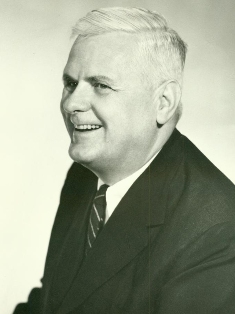The Cardano smart contract Era is almost upon us. And you may have noticed that the team behind the project have a fondness for naming phases of the project and specific releases after some of their heroes from the world of science, philosophy and mathematics.
The project itself is named after Geralomo Cardano, a Renaissance polymath who lived in Italy in the 16th Century.
This current phase is known as Goguen, after Joseph Goguen a computer scientist who pioneered work in a number of important fields such as fuzzy sets and abstract data types).
The release that will actually fully implement Smart Contracts is named Alonzo, after Alonzo Church, who along with Alan Turing formulated the Church-Turing thesis (an important finding on the nature of computable functions).

The really big contribution that Church made to mathematics (which links to smart contracts) is Lambda Calculus. From the wikipedia article:
Lambda calculus (also written as λ-calculus) is a formal system in mathematical logic for expressing computation based on function abstraction and application using variable binding and substitution. It is a universal model of computation that can be used to simulate any Turing machine. It was introduced by the mathematician Alonzo Church in the 1930s as part of his research into the foundations of mathematics.
https://en.wikipedia.org/wiki/Lambda_calculus
The use of Lambda calculus for smart contracts (via Plutus) is another one of the reasons that Cardano is so far ahead of the pack. We’ll come back and explore that another time.
